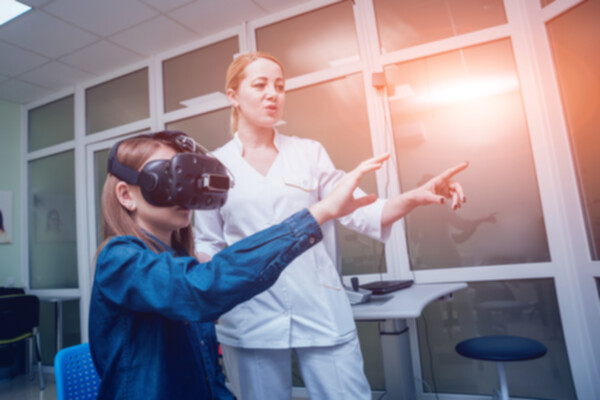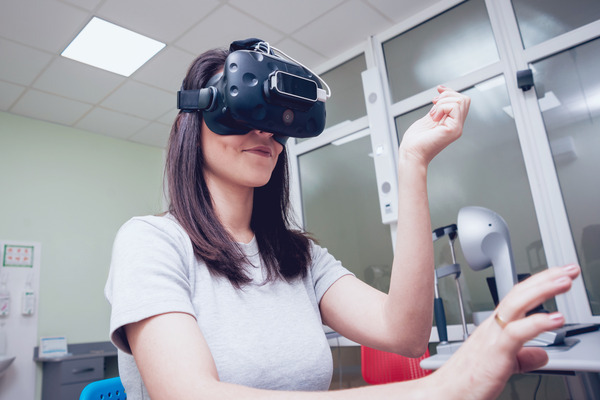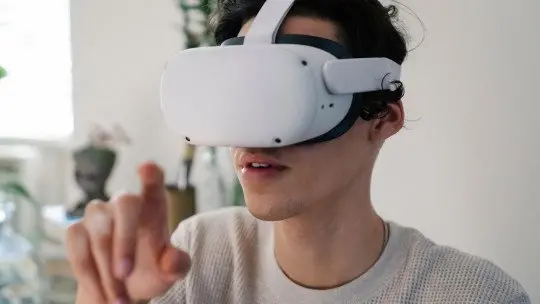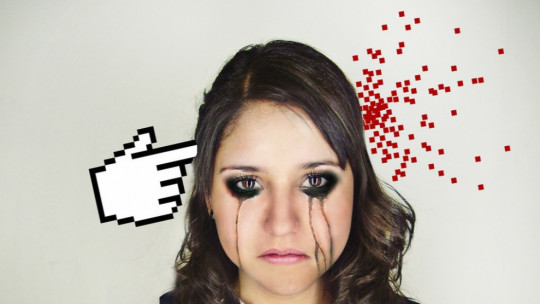How can virtual reality be used in psychology? Is therapy with a virtual psychologist useful? Discover the benefits and advantages of using virtual reality therapy.
For a few years now, applications like Phobious or professional programs like Psious have made it possible to overcome phobias through virtual reality. The use of the virtual reality in psychology It’s not something new. In the United States it was used effectively to treat the emotional problems and disorders presented by some war veterans, whose participation in war conflicts had left significant psychological consequences on their health. Do you want to know what the use of the drug consists of? virtual reality in psychology?
The novelty of this application, which was already effective, lies, therefore, in its accessibility. While access to these types of virtual reality For therapeutic use was limited to the American professional field, the Phobious application, and the subsequent Psious program, have been designed so that anyone, both individually and within a psychological treatment controlled by a specialist, can use it as a way to overcome your phobias. Of course, you must have special glasses for this.
What is virtual reality in psychology?
The virtual reality in psychology It aims to reflect a world that is both immersive and interactive in order to carry out the most realistic therapy possible with a patient. Therefore, the success of this ‘virtual psychology’ implies precisely the success of this type of therapy is closely linked to whether this digital experience really simulates the world around us well.
In relation to this, various investigations regarding the application of virtual reality in psychology They found that these digital limbs can appear indistinguishable from the ones we have in the real world. So much so that it was shown that through these virtual reality systems they can induce physiological and psychological responses in the same way as when facing a similar situation in our daily lives.
What is the history of virtual reality in psychology?
In 2013 Xavier Palomer and Dani Roig founded Phobious, a pioneering project of virtual reality in our country who received advice from psychologists from the Hospital Clínic of Barcelona and the Johns Hopkins center in Bartimore (USA). Hence the Psious program was born, software and hardware intended for psychologists for the in-clinic treatment of problems associated with fears, anxiety disorders and phobias.
To develop this project, this Spanish company contacted psychology professionals from the University of Alicante such as Joaquín Cantó , with the aim of establishing the necessary requirements to make the program that Psious technicians would have to create effective. Therefore, they have been professionals in virtual psychology those who have been able to design the necessary tools so that the program can be personalized and, therefore, be effective. This means that the use of this VR program in psychological therapies achieves surprising results.

Who is virtual reality in psychology intended for?
There are a series of psychological cases in which a virtual reality treatment can be very effective. According to psychologists, it is recommended to use virtual reality in psychology for the following cases.
1. Phobias and fears
As we have mentioned, the program of these types of virtual reality It makes it possible to subject the patient to a reality in which they can overcome their fears or phobias. In this way, it is a program aimed at subjects who suffer from disorders related to phobias, especially those that involve the fear of flying or closed or open spaces, as well as certain insects (spiders, snakes…).
2. Stress
Likewise, it is also used virtual reality in cases of stress, completed with tools such as mindfulness, as it allows patients to overcome those moments of tension and excessive nervousness typical of stress through self-control and relaxation.
3. Anxiety disorders
Another application of these types of virtual reality It is precisely to be able to treat anxiety. Thanks to the application of virtual reality in psychology, psychologists can teach different methods to deal with this disease.
4. Acute and chronic pain
In many cases, virtual reality It has proven effective in learning different resources to deal with acute and chronic pain through our mind and the focus of our attention.
5. Addictions
The virtual reality in psychology It is also very effective in providing safe and controlled exposure to the signs that are related to addictions to any type of substance.
These are some of the applications you can have virtual reality in a consultation In addition, you must keep in mind that this type of treatment must always be carried out by a ‘virtual psychologist’, that is, a specialist in this field of mental health.

Benefits of virtual reality in psychology
In comparison to some of the ‘traditional psychology’ treatments virtual reality It has the following benefits for our mental health.
More controlled
As a patient progresses in overcoming their fears or phobias, the virtual reality can be adjusted to make the stimulus that creates terror more provocative. In this way, the grade can be monitored and progress during therapy.
More practical
In the ‘real world’ it can be risky to expose people to their most intrinsic fears. Despite this, thanks to the use of the virtual reality In psychology, psychologists can control these situations and make it more practical to learn how to deal with these threats.
Similar physiological response
Thanks to the virtual reality applied to psychology , people can feel an experience similar to reality. Therefore, by applying therapy in these situations, you can learn to better control and manage your emotions and sensations.
These are some of the benefits of virtual reality in psychology. As we have mentioned, these therapies are only effective with help from a virtual psychologist
How do these types of therapies work?
The psychologist works with the patient to create hyperrealistic scenarios that allow them to overcome their fears. Joaquín Cantó explains that the program makes possible a complete immersion of the patient, an exposure, in which the heart rate, sweat and breathing that the subject may experience are controlled. The professional regulates the stimuli based on the patient’s responses, adding more, distancing them or reducing their presence.
What is intended with the application of virtual reality in psychology is that the patient can face his fears and overcome them. The goal is for him to be able to confront them in a real scenario through special glasses and defeat them.









